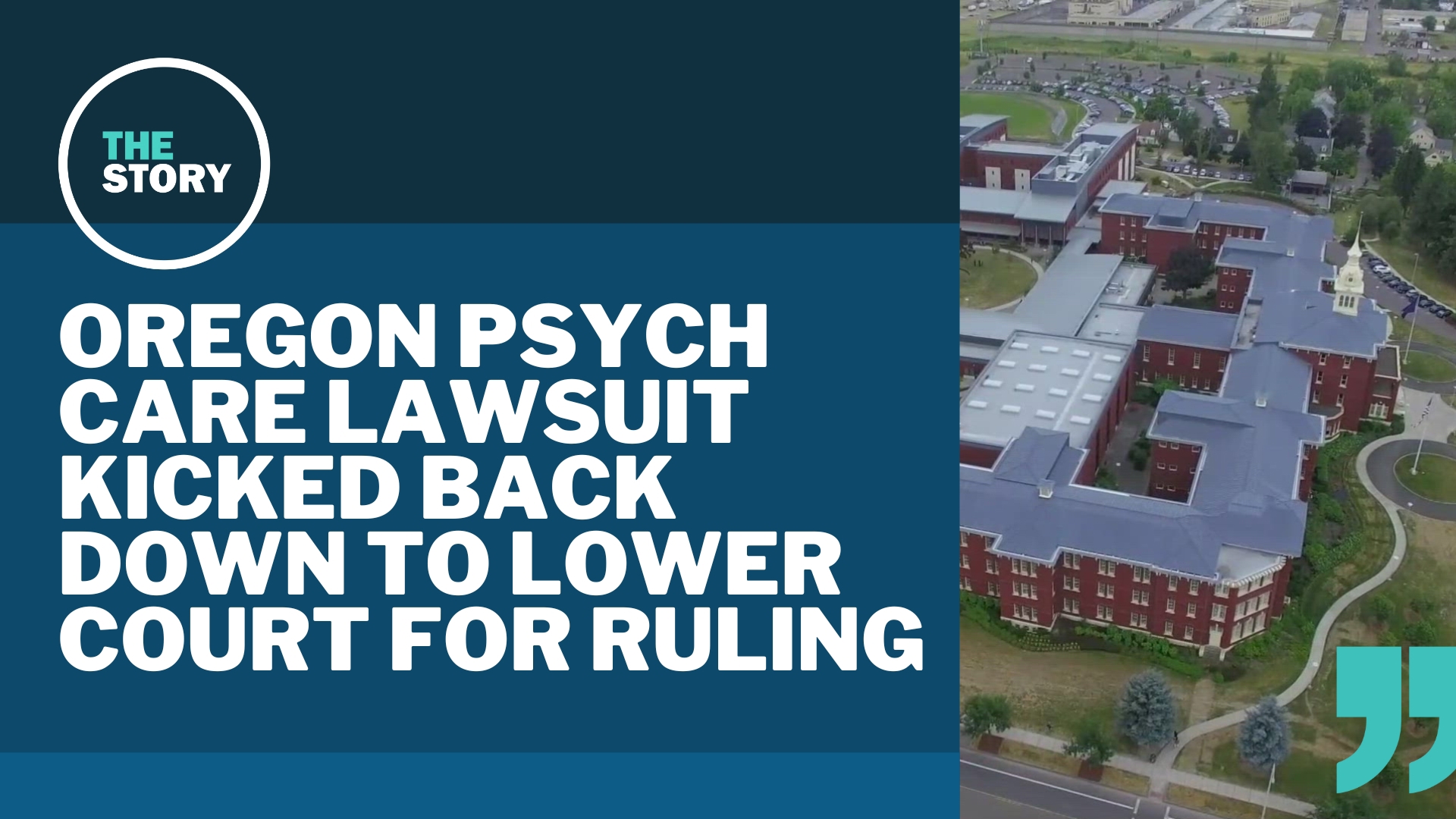PORTLAND, Ore. — Judges with the Ninth Circuit Court of Appeals have ruled that a lawsuit filed by four of Oregon's largest hospital systems against the Oregon Health Authority over state psychiatric care needs further review at the district court level before a ruling can be made.
The appellate judges reversed and vacated a prior district court ruling that found the hospital systems' lacked third-party standing to assert claims on behalf of civilly committed patients. They remanded the case to district court.
Legacy Health, Providence Health & Services, PeaceHealth and the St. Charles Health System are suing the OHA, alleging that the state fails to provide proper treatment to people with severe mental illness.
At the core of the issue, the hospital systems say OHA's lack of bed space for civilly committed patients causes them to keep patients for long periods of time in acute care settings which are not designed or equipped for the long-term mental health care that these patients need.
The four hospital systems account for more than half of Oregon's psychiatric beds, which the hospitals classify as short-term, acute care.
"Community hospitals are not equipped, staffed or designed to provide long-term mental health care," said Alicia Beymer, Chief Administrative Officer for PeaceHealth Sacred Heart Medical Center at RiverBend in a statement. "We felt duty-bound to appeal on behalf of the many vulnerable patients who are being denied appropriate care."
KGW has previously explained in depth how Oregon has effectively criminalized severe mental illness in recent years by prioritizing admitting patients facing criminal charges over those with civil commitment orders.
In an opinion posted Wednesday, the appellate judges acknowledged the challenges that OHA faces due to a lack of bed space and the demands of another federal court ruling.
RELATED: Court rulings demand Oregon State Hospital toe the line between patients' rights and public safety
The judges explained that OHA is under "competing pressure from the injunction upheld by our circuit in Oregon Advocacy Center v. Mink ... which requires (the Oregon State Hospital) to admit criminal defendants who are found 'mentally incapacitated ... within seven days of the judicial findings of their incapacity to proceed to trial.'"
With the case returning to district court, a judge will determine whether the hospital systems are able to speak on behalf of civilly committed patients.
On one hand, appellate judges said, the outcome that Legacy Health and others seek "on the face" of their complaint would benefit civilly committed patients by ensuring they "receive appropriate long-term treatment from OHA," even if bed space is a clear issue at present.
On the other, as defendants argued in a hearing in May, the hospital systems also have a financial incentive to clear their own bed space for other patient admissions — although the judges wrote that "some tension" between these desires is not enough to completely rule out third-party standing.
The appellate judges said the district court's assertion that Disability Rights Oregon would be better suited to speak on behalf of civil commitment patients is "clearly erroneous," as DRO represents the criminal defendants in the Mink litigation who are in direct competition with civil commitment patients for treatment at the Oregon State Hospital.
In a previous interview with KGW, Unity Center for Behavioral Health president Melissa Eckstein said it's not an option for local hospitals to stop providing treatment to civilly committed patients, even if the state is legally required to provide this type of care, as it would go against the hospitals' missions.
"Can we imagine what state our community would be in if our community hospitals made the decision to stop providing this level of care, where would these individuals go?" Eckstein said.
In response to KGW's inquiry, the OHA said it does not comment on active litigation.
Eckstein, in a statement, said she is pleased with the appeals court's decision.
"We're optimistic that this lawsuit will result in a much-needed course correction from the OHA," Eckstein said. "We originally took this action because the State of Oregon consistently violates the civil rights of vulnerable Oregonians by refusing to provide care intended to restore their freedom."
Robin Henderson, Chief Executive of Providence Behavioral Health, added in a statement that the court's ruling allows the continued pursuit of legal action to ensure a 'functional mental health system' in Oregon, including secure residential treatment facilities.
"Oregonians won't be able to fully realize this system until the state begins living up to its legally mandated role," Henderson said.

